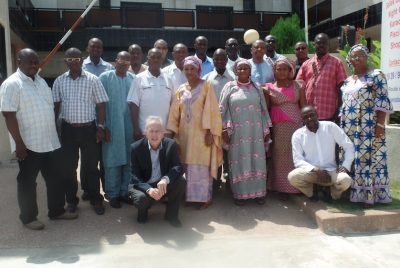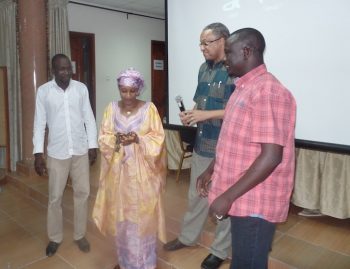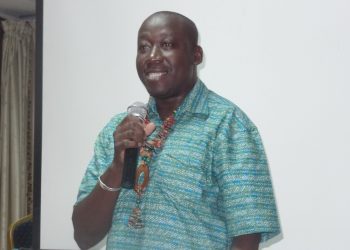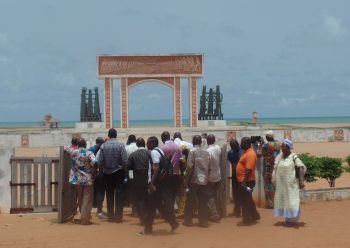A PBF course was held in Cotonou from the 25th of April to the 6th May 2016 with seventeen participants from Mali, and one from respectively the DRC and Ivory Coast. The course was organised by SINA Health and BEST-SD Bénin and we thank the Benin MOH for their warm cooperation.
The atmosphere of the course was excellent and the participants left Cotonou with a strong desire to improve the health system in their respective countries. They concluded that Mali and the DRC still needs improvements in their PBF design. Three participants (all from Mali) obtained distinctions.
MALI
The design of the new PBF project and the process to start PBF in Mali could benefit from the following:
- Prepare a report and organise feed back meetings with the aim to have the same views for the central level authorities, technical and financial partners as well as for the authorities at regional and district levels;
- Advocate for the implementation of PBF during an enlarged meeting with the Cabinet of the MOH;
- Harmonise the PBF documents and improve in particular the institutional set up;
- Arrange 1 or 2 training sessions for decision-makers from the central in Mali on PBF with the support of external consultants;
- Organise a study tours for health high decision makers to countries that have advanced with PBF;
- Involve participants of this course and the October 2014 course to advance with PBF in Mali;
- Organise training sessions in those districts that will start PBF;
- Conduct a baseline study;
- Review the PBF project budget to ensure that financial resources are sufficient to start the project. It takes around 4 dollars per year per inhabitant to provide the full health packages at primary and hospital levels;
- Transfer GAVI funds now available for a project that seeks to accredit health facilites towards PBF;
- The current project has 16 indicators while an average of 25 to 35 would be desired. We propose to include more indicators to assure that holistic health packages can be provided at health facility level instead of only limiting them to reproductive health and immunisation indicators.
- Liberalise the market for the distribution of essential medicines. Promote the development of multiple distributors operating in competition while the government strengthens its regulatory capacity to assure the quality among those distributors. This requires an accreditation system for all public and private distribution centres;
- Develop a document that explains the role and autonomy of the in-charges of health facilities.
Ivory Coast
The population contributes 56% of total health expenditure in Ivory Coast while the government only contributes 18% of in total USD 60 per person per year. Maternal mortality with 614 deaths per 100,000 live births is high.
Recommendations Ivory Coast
- Give PBF health facilities the legal authority (for example in a projet memorandum of understanding) to formalize their autonomy and thereby to be able to apply the PBF best practices. This document should also include the roles for the Regional Health Directorates, District Health Teams and Regional CDV Agencies;
- Break the monopoly and exclusivity of suppliers and provide an opportunity for health facilities to purchase drugs at public and private distributors operating in competition but accredited by government;
- Ensure that private providers can be integrated in the PBF system;
- Provide a training program so that public and private health facilities gain more knowledge, skills to implement PBF;
- Discuss with the Ministry, through the Directorate General and the DPPEIS in partnership with other partners such as the Global Fund, USAID and the World Bank, the possibility of combining in health districts the MSH Development Program in Leadership and Governance with PBF.
DEMOCRATIC REPUBLIC OF CONGO
There are concerns about the PBF pilot project funded by UNICEF. We propose the following recommendations:
- The government may liberalise the drug sector and cancel the Regional Distribution Center monopoly system. Yet, this also requires that government and the partners ensure effective quality control of the distributors through an accreditation system;
- UNICEF may take into account and assure the financing of all indicators in the primary and hospital health packages;
- UNICEF should assure that the Family Kits approach is also assured with its specific PBF targets;
- UNICEF may transform, if possible, the budget for the inputs of the family kits into PBF subsidies directly to providers, and create a supply system with accredited distributors;
- UNICEF may transform the subsidies allocated to the districts into PBF;
- That the contract development and verification agency (CDV) convinces the religious authorities to entrust the payment function to an independent structure.





